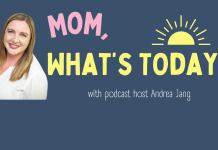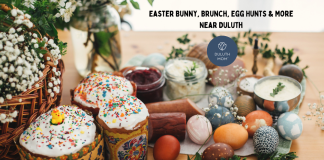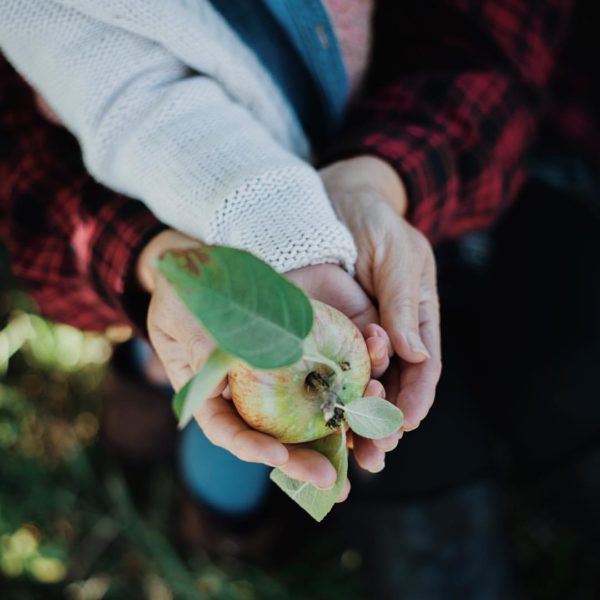For the past several decades, about 50% of our plastic waste, such as single use food packaging (chip bags, yogurt containers, fruit containers, etc.) straws, single use water and soda bottles, plastic cutlery, cling wrap and plastic grocery bags (and much more!) has been sent to China for disposal. There, it is sorted and made into a product that plastic manufacturers could use to make new products. However, in January of 2018, China placed a ban on the import of most plastics and many paper products such as magazines. They no longer accept much of the world’s recycling which has helped bring to light a major problem: the world’s over reliance on single-use plastics.

This ban was imposed for a few reasons. One, many products were arriving in China contaminated and were unable to be recycled (since the movement toward putting all recyclables into one bin rather than sorting it first). Two, plastics are being made in a more complex way and have different additives and compositions making them more expensive and difficult to recycle. Three, disposing of plastics that can’t be recycled contributes to air and water pollution and China aims to become a less polluted country.
In response, many cities in the US have had to stop collecting plastic recycling altogether and are just bringing it to landfills. Unfortunately, this plastic can take 500 years or more to decompose in landfills, and we all know that landfills emit methane gas into the atmosphere which contributes to global warming. Some cities have begun burning their plastic recycling which emits toxins into the air, impacting air quality. Single use plastics are the main concern here; aluminum and glass can still be recycled.
So what can we do about it?
To help with that question, I reached out to two Northland women who aim to inspire us all to reduce the amount of waste we generate. April Hepokoski and Joanna Nelson have teamed up to educate others on how to transition to zero waste living through their Facebook group Zero Waste Duluth. Here’s what they have to say:
What made you interested in learning how to reduce waste?
April: My journey to zero waste started when I became very ill with SIBO and endometriosis. I was on the search for a natural treatment and cure for my conditions after being diagnosed. Through researching and connecting with people in healthcare and environmentalism, I started to see that what I eat and use in my home affects my health. I started eliminating plastics from my home to reduce the chemicals and endocrine disruptors in my food and environment, which inspired me to continue making my home healthier and more environmentally-friendly.
What inspired me to start the Zero Waste Duluth group on Facebook and Instagram was the devastating site of plastic pollution in Lake Superior on Park Point. After seeing all of the plastic washing up on the beach, I knew that Duluth needed a big change to combat the pollution, and I wanted to take action and inspire change.
What were some of the first steps you took to reduce waste?
April and Joanna: A huge amount of waste was from paper napkins and paper towels, which inspired a change to reusable napkins and towels. Another first step was bringing cotton bags and reusable containers for produce and bulk foods at the store and reusable bags for packing groceries in.

Was any particular zero waste lifestyle change surprisingly easy to make?
Joanna: Most of the changes have actually been really easy! It seems a little daunting at first but it feels so good to be more aware of how you’re consuming and to make choices that are more educated.
Was there a change that you thought might be a sacrifice but turned out wasn’t that big of a deal?
April: I was worried about the temptations of some processed food, like chips. I just had to find a creative solution to still being able to eat chips without buying them in a bag. Now I make my own.
What do you find the most difficult about living a zero waste lifestyle?
April: The environmental guilt is difficult: feeling as though I’m not doing enough and not being environmentally conscious enough to make bigger and more positive changes for the environment.
Joanna: Difficulty lies mostly in keeping reasonable expectations for myself. Perfection is not an option.
Is there something that is particularly challenging about being zero waste? Or something that was challenging at first, but has gotten easier with practice?
April: Meal planning still feels like a lot of work. Packaged, processed food takes less time to make, where zero waste meals can be more work. I tend to eat really simple meals now that don’t take a lot of prep time, and that allow me to eat a lot of my food just as it is.
Joanna: It’s challenging with kids: they receive plastic toys at church and birthday parties, plastic bags with plastic toothbrushes at the dentist, and all kinds of papers and non-recyclable items at school. Politely saying no can be challenging and is sometimes unavoidable.

What advice do you have for someone who wants to start reducing waste in their home?
Joanna: Start by looking up a list of zero waste ideas online. (Follow the Zero Waste Duluth Facebook and Instagram pages for inspiration!) Tackle one or two changes at first. Add others as you gain confidence. Be gentle with yourself. Everyone’s journey is different. Sustainability has to be sustainable for you! The term “zero waste” can be intimidating but it’s not an all-or-nothing concept. It’s about being aware of your consumption habits and actively making choices that will help our planet rather than harm it.
Simple zero waste changes you can incorporate in your day-to-day life:
Bring reusable bags to the grocery store for packing groceries.
Skip the plastic bags for fruit and veggies in produce section. If you need something to collect the produce, bring a smaller bag from home.

Bring reusable containers to the meat counter in the grocery store, and request the butcher to place meats in it for you.
Begin making some of your own foods such as pesto, hummus, yogurt, chips and granola.
Buy what you can in bulk (oats, nuts, pasta) and place it in your own container. Aim to buy pre-packaged items that come in glass jars or aluminum cans which are 100% recyclable. (I save many of the glass jars to store the food items that we make at home that I mentioned above).
Use only reusable water bottles and coffee tumblers. Ask the barista to use your tumbler to make your drink, I bet they will.
Decline straws in restaurants and everywhere, if you need a straw, get a reusable bamboo or stainless steel.
Bring your own container to bring home leftovers from restaurants.
Avoid plastic cutlery.
Use reusable towels and napkins in place of paper towels. (I’ve have made this change in our home and it was a lot easier than I thought it would be!)
When it’s time to replace your toothbrush, get one that is made from bamboo rather than plastic.
Continue to use the products you already have in your home. Don’t go out and replace something with a more eco-friendly product unless it’s well and truly in need of replacement.
In early 2018, April started to promote the zero waste lifestyle and educate others on simple zero waste changes that are easy to incorporate in day-to-day life. She also runs a zero waste, nature-based preschool on her hobby farm in Esko called The Little Barnyard Preschool. Joanna lives in Cloquet and is a SAHM to two young boys. She became inspired by April’s Zero Waste Duluth facebook posts and joined her as an admin on the page in November of 2018.










